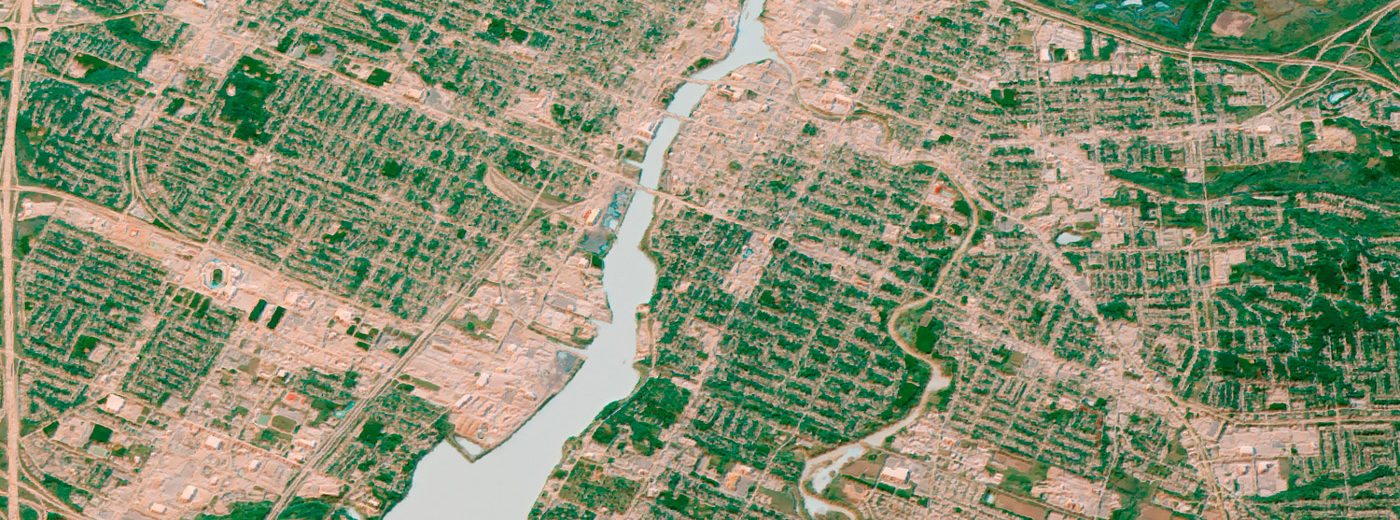Blogs
Using Geospatial Data To Support Sustainability
February 15, 2022


Building sustainable communities is impossible without the use of technology and geospatial data. There are countless organizations working to provide sustainable solutions for the myriad issues communities might face, but ASTERRA stands out because our solutions are useful in every community, everywhere.
ASTERRA uses data from space to protect limited natural resources and monitor community infrastructure on Earth. Our solutions provide sub-surface ground saturation mapping at very high spatial resolution in three main markets: water utilities, wastewater, and ground infrastructure assessment.
The United Nations Sustainable Development Goals are at the forefront of the ASTERRA mission. ASTERRA products use geospatial data to contribute to three of the 17 sustainable development goals (SDGs): SDG 6, to ensure availability and sustainable management of water and sanitation for all, SDG 9, focusing on industry, innovation, and infrastructure, and SDG 13 involving climate action.
Sustainability is both a part of ASTERRA’s business strategy, and it also guides our mission. With technological innovation, we help public and private sectors overcome major water and infrastructure challenges.
Contributing to SDG 6, to ensure availability and sustainable management of water and sanitation for all, ASTERRA uses geospatial data to help customers build resiliency and ensure a continuous water supply. We do this by providing a service that proactively monitors water and wastewater systems for leaks before they are visible. Leaks that could go undetected for years are found without breaking ground by ASTERRA Recover. Achieving higher efficiency and effectiveness in water leakage reduction means less water is taken from natural reserves. It also means less energy is used to pump and process water that is ultimately lost and there is a reduction in the associated carbon emissions used to produce that energy. The result is more drinking water available to everyone.
In SDG 9, industry, innovation, and infrastructure, ASTERRA contributes by providing solutions that improve infrastructure’s resiliency. This includes the monitoring of underground pipelines to better model and plan for maintenance with ASTERRA MasterPlan, as well as providing measurement of soil moisture with ASTERRA EarthWorks to identify areas that must be mitigated before assets fail or as a guide planners can use when building them. ASTERRA bolsters the ability to build resilient infrastructure, promote inclusive and sustainable industrialization, and foster innovation.
SDG 13 calls for taking urgent action to combat climate change and its impacts. Since climate change is impacting the frequency and intensity of extreme weather events, such as heat waves, droughts, and floods, ASTERRA contributes by helping customers identify and locate vulnerabilities on critical infrastructure, making it more resilient to severe weather from climate change.
Using geospatial data for sustainability makes sense because it allows engineers, water utility managers, ground crews, regulators, and all citizens to create sustainable plans and efficiently execute them. This is a critical concern. Wasted water matters because it is an increasingly limited resource. Wasted manpower matters because it costs time and money. Wasted energy matters because significant energy is used to pump water. It is all interconnected and it all matters.
ASTERRA is not alone in its commitment to using geospatial data for sustainability. They are joined by many utilities and organizations worldwide, including American Water, which is the largest private water utility in the U.S. and serves 14 million people in 46 states. They also use satellite data to support their sustainability program. Additionally, the ASTERRA team is actively engaged in the global conversation around using data derived in space for sustainability; in March, Jonathan Jacobi, ASTERRA director of sales, will speak at the International Conference on Water Management and Sustainability: Solutions for Arid Regions (uaeu.ac.ae).
With over 450 projects completed in 59 countries, ASTERRA has saved 169,280 million gallons of water, reduced carbon emissions by 108,339 metric tons, and saved 423,200 MWH of energy.
Now that matters.